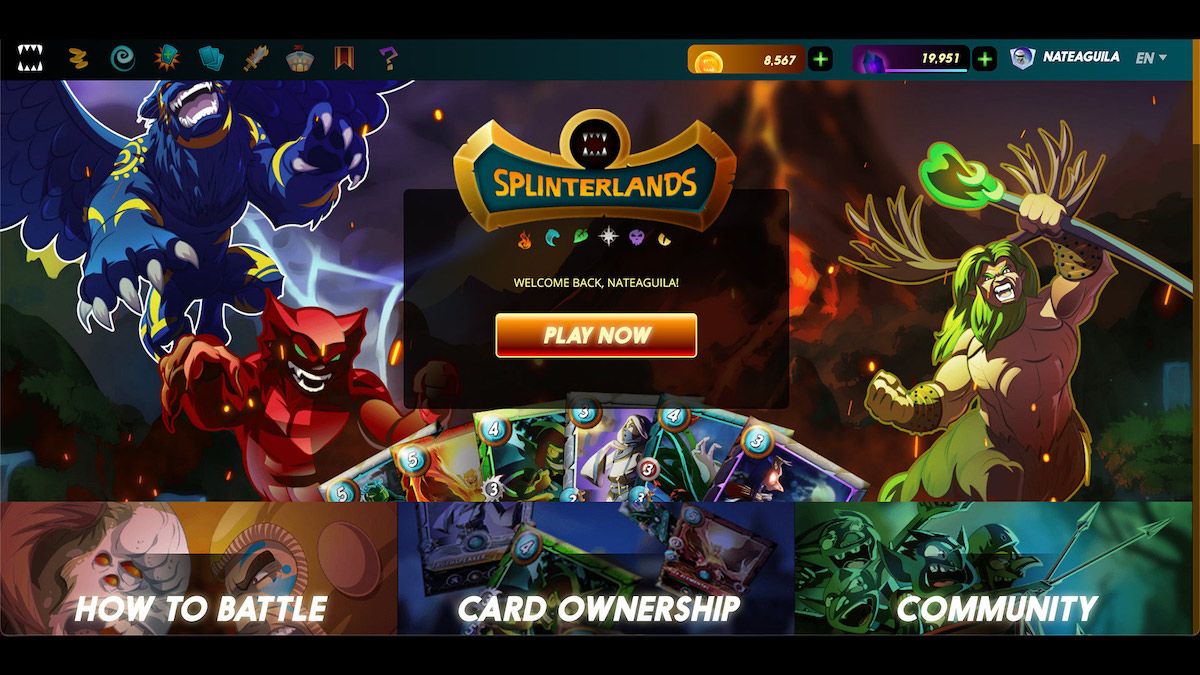As blockchain technology and cryptocurrency become increasingly mainstream, you’ll start to see it integrated into your everyday life past the investing and financial world.
Two technologists from Pennsylvania — one from Media and one from Lancaster — made a professional bet on the trend a few years ago when they launched Splinterlands, a digital trading card game where every action in the game takes place on the public Hive blockchain and every asset in the game is a nonfungible token, or NFT.
Players can buy, sell and trade digital assets as they would physical trading cards, and it’s similar in concept to games like Magic: The Gathering, cofounder Matthew Rosen told Technical.ly. Players build up a collection of cards with different stats and abilities and battle other players in skill-based matches. Because transactions are happening on the blockchain, anyone can know how many of each card type exists, and how many will ever exist, and verify the record of each card.
Co-CEOs Rosen and Jesse Reich launched the game in 2018 under the name Steem Monsters and pursued it full-time by the end of that year, Rosen said. They had been self-funded from selling game card packs, but recently began taking on some strategic investments that’s lead to the ability to expand their team. (Crunchbase reports the company took $100,000 from Blockchain Founders Fund in December 2020.)
“With the crypto boom and NFTs gone crazy, we’d been profitable, but not making a ton of money — a few people full time, that was it,” Rosen said. “Now all the sudden we’re in this position with resources and money available.”
When they first launched, a few years ago, they intended the game to be as user-friendly as possible. At the time, Rosen said, most people using blockchain were “computer nerds.” Now, there’s plenty of gamers who have experience with bitcoin or other crypto. Game players perform about 600,000 blockchain transactions every day on Splinterlands, he said.
“For lot of gamers who heard of bitcoin and crypto, this was a fun, easy way to get involved,” Rosen said. “And we always wanted that to be one of our focuses.”
The company is also launching a governance token for the game that they expect will raise a few million dollars. Splinterlands currently employs six full-time distributed staffers and about 15 people total, including part-time and contract workers. It’s now hiring for developers and UX and UI designers who are passionate about the game and the crypto and blockchain world, and who are ready to experiment.
“We’re looking for good people who can come in and figure it out,” Rosen said, “who are as passionate about what we’re doing as we are.” Interested? Email matt@splinterlands.com.
Join the conversation!
Find news, events, jobs and people who share your interests on Technical.ly's open community Slack

Philly daily roundup: Earth Day glossary; Gen AI's energy cost; Biotech incubator in Horsham

Philly daily roundup: Women's health startup wins pitch; $204M for internet access; 'GamingWalls' for sports venues

Philly daily roundup: East Market coworking; Temple's $2.5M engineering donation; WITS spring summit


